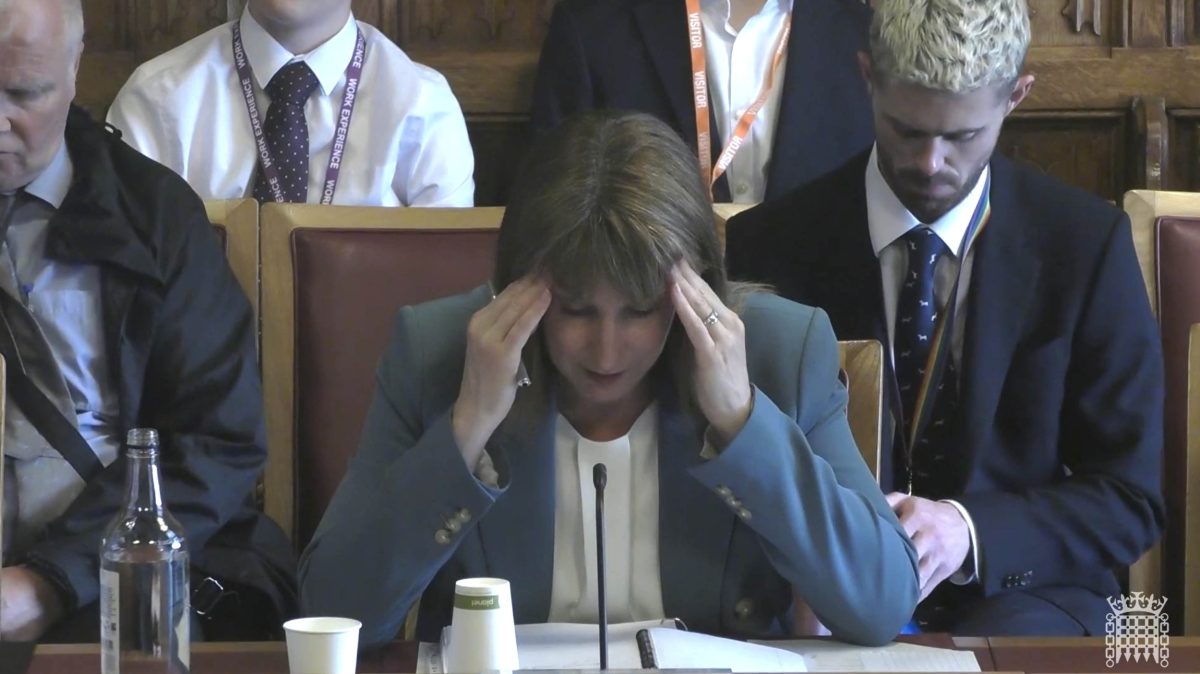Rachel Reeves may need to abandon Labour’s promise not to raise taxes on“working people”or abandon the state pensiontriple lockto ease the burden on public finances, the IMF has stated.
A report released on Friday by the global financial organization stated that the UK must make “challenging choices” to tackle “emerging spending demands and restore financial reserves.”
It mentioned that a possible option instead of increasing VAT, income tax, or national insurance, or abolishing the triple lock, would be to charge higher-income individuals for using the NHS.
Tolong support kita ya,
Cukup klik ini aja: https://indonesiacrowd.com/support-bonus/
It arrives at a moment when the Chancellor isthinking about the taxes she will need to implement in this autumn’s Budgetto fix a gap in the public finances resulting from below-anticipated growth and changes of position regardingwinter fuel and welfare cuts.
It echoes previous alerts from the Institute for Fiscal Studies, which cautioned in March that the Chancellor might need to increase taxes in the autumn, while the Office for Budget Responsibility (OBR) mentioned earlier this month that the triple lock is projected to cost three times more than anticipated by the end of the decade.
Labour’s 2024 general election manifestoincluded a pledge to “avoid raising taxes on those in work,” as outlined in the document, which specified that this meant not increasing “National Insurance, the standard, elevated, or additional levels of Income Tax, or VAT.”
Reeves subsequently announced an raise the employer’s National Insurance contributions in last October’s Budget, but stated that since this applied to employers and not employees, it was in line with the manifesto promise.
Nevertheless, according to the IMF’s yearly report regarding the UK’s economic situation, the organization cautioned that a “volatile global setting” and Reeves’s choice to restrict her own flexibility under her fiscal borrowing guidelines meant that the rules “might readily be violated if economic growth falls short or interest rate fluctuations occur.”
The Chancellor’s approach is to finance daily expenses through taxes rather than loans, although her available funds—effectively the amount she can access—are only £9.9 billion.
Warning of unpalatable choices
Although the report largely commended the Government’s financial strategies and growth initiatives, it noted that Reeves could be forced to make difficult decisions to adhere to her guidelines, which stipulate that public expenditure must be matched by tax income over a five-year period and that debt should decrease as a percentage of GDP in the final year of the parliamentary term.
The IMF stated: “If the authorities do not reconsider their pledge not to raise taxes on ‘working people,’ additional prioritization of spending will be necessary to better align the range of public services with available resources.”
The authorities have already started this process via recent changes to incapacity and disability benefits, but additional methods for reducing costs should be explored.

Specifically, the triple lock might be substituted with a policy that links the state pension to the cost of living, as suggested in earlier [IMF] reports.
Public services might also be influenced more by a person’s ability to afford them, with fees applied to those with higher incomes, like co-payments for healthcare, while protecting those in need. There could also be potential to extend the assessment of benefits based on financial status.
The triple lock guarantees that the state pension increases annually by the highest of three factors: inflation, average wage growth, or 2.5 per cent.
Pensions tied to inflation would result in lower cash amounts
If the state pension was linked solely to inflation, as it was prior to the triple lock, it would probably become significantly less generous in the long run.
Assessing the implications of an inflation link for pensions in the future is complex, as it would rely on how earnings growth and inflation evolve in the years ahead.
However, if an inflation link had been implemented since 2016 instead of the triple lock, the full new state pension would be approximately £209 per week, compared to the current £230 per week.
Former MP Sir Steve Webb, who served as pensions minister when the triple lock was introduced in 2011, stated that the approach of tying the state pension to inflation “led to the pension’s value decreasing compared to people’s earnings – which was the issue the triple lock aimed to address.”
However, certain Labour MPspreviously privately contending that the triple lock is not viable, the IMF’s involvement will increasemore questions regarding its sustainability over time.
Tax rises ahead
The reality that Reeves is set to introduce tax increases once more this autumn is partially due tothe reality that she allocated herself only £9.9bn in fiscal flexibility, leaving her plans open to even minor economic changes.
The IMF proposed that the Government might adopt a system where its public finances are reviewed by the Office for Budget Responsibility annually, instead of the present arrangement of twice a year.
Read Next: All the different ways your pension might face higher taxes – and what that would mean for you
However, it suggested that the most effective approach for Reeves to prevent “excessive” policy changes would be to set “higher margins” regarding her available space – possibly leading to even greater tax increases in the Budget.
In response to the IMF, Reeves stated: “The latest IMF report highlights that the decisions we have made have secured the start of Britain’s economic recovery, and that our strategies will address the long-standing economic issues we faced despite the challenges posed by global economic pressures.”
There is further work to be done, which is why we are reducing unnecessary bureaucracy and removing barriers to investment, allowing British companies to succeed and increasing income for hardworking individuals.







